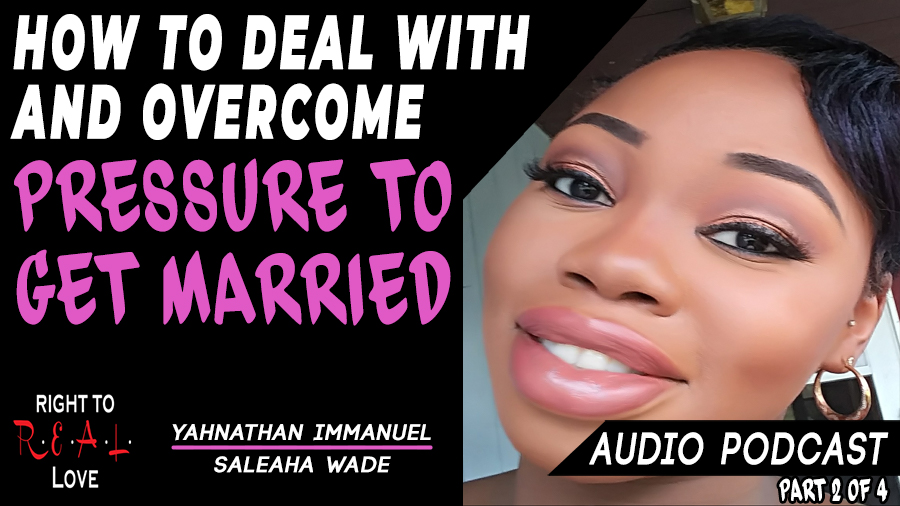
Understanding the Pressure to Get Married
Societal Expectations and Norms
In many cultures, marriage is seen as a rite of passage. Society often emphasizes the idea that one must be married by a certain age, leading to unwarranted pressure. For instance, friends might ask about wedding plans, further spotlighting this cultural norm.
Family Influence
Family can intensify the urgency to marry. Parents may share dreams of seeing their children settled down, which, while well-meaning, can add significant pressure. It’s not uncommon to hear phrases like:
- “When will you bring someone home?”
- “You don’t want to be alone forever, do you?”
Personal Beliefs and Values
Ultimately, individual beliefs impact views on marriage. Some might see it as a necessary milestone, while others challenge its importance. For many, balancing external expectations with personal values is key to navigating the conversation around marriage.

Impacts of Marriage Pressure
Mental Health Effects
Feeling pressured to marry can lead to anxiety and self-doubt. Many individuals may question their self-worth if they fail to meet societal timelines. It’s common to experience:
- Increased stress levels
- Feelings of inadequacy
- Depression over unmet expectations
Relationship Strain
Pressure can also create tension in relationships. Partners might feel overwhelmed by external expectations, leading to arguments or resentment. Friends often stress about their timelines, making communication essential.
Career and Personal Development Constraints
Moreover, marriage pressure often diverts focus from personal growth or career aspirations. Individuals may prioritize getting married over pursuing educational or professional goals, leading to regret later. Balancing these ambitions is crucial for well-being.

Coping Mechanisms and Self-Reflection
Communication with Family and Peers
One effective coping mechanism is open communication. Sharing thoughts with family and friends can alleviate the pressure of marriage expectations. For instance, expressing feelings about timelines can:
- Clarify misunderstandings
- Reduce familial expectations
- Foster support and understanding
Setting Personal Boundaries
It’s also important to establish personal boundaries. Politely declining invasive questions about marriage can protect mental space. An example could be saying, “I appreciate your concern, but I’m focusing on my career right now.”
Seeking Professional Support
Lastly, seeking professional support can provide valuable insights. Therapists can help individuals navigate societal pressures and assist in developing coping strategies tailored to personal circumstances. This support can bolster mental health and enhance self-awareness.
:max_bytes(150000):strip_icc()/multi-ethnic-couple-planning-their-home-budget-1216679280-680a5743796642618100726cc8e3d03e.jpg)
Exploring Alternative Choices
Embracing Singlehood and Independence
After grappling with marriage pressure, many find strength in embracing singlehood. This phase offers the chance to discover personal interests and passions without compromise. For instance, one can travel, pursue hobbies, or dedicate time to friendships, enjoying the freedom that comes with independence.
Focusing on Personal Growth and Goals
Single life can also be a fertile ground for personal growth. Setting and achieving goals—like furthering education or career advancements—can be incredibly fulfilling. Consider making a vision board to visualize these aspirations and motivate progress.
Considering Different Forms of Relationships
Moreover, exploring various relationship types can be eye-opening. Whether through casual dating or deep friendships, connections can take many forms, each enriching life in unique ways. Emphasizing meaningful bonds over traditional timelines allows for a fulfilling life beyond societal expectations.

Navigating External Pressures
Handling Judgment and Criticism
Stepping away from conventional paths can often invite unsolicited judgment. It’s crucial to remember that others’ opinions don’t define one’s worth. Practicing self-affirmation can help, such as reminding oneself of personal values and decisions. For example, saying, “I am happy with my choices,” can reinforce confidence.
Responding to Unsolicited Advice
When faced with unsolicited advice, a polite yet firm response can establish boundaries. One might respond with, “I appreciate your concern, but I prefer to navigate this my own way.” This approach helps in maintaining respect while asserting independence.
Building a Support System
Finally, building a supportive network is essential. Engaging with like-minded friends or groups creates a space for shared experiences. These connections provide reassurance and encouragement, fostering a sense of belonging that can counteract the pressures from society.

Making Informed Decisions
Evaluating Relationship Readiness
As individuals navigate the complexities of relationships, evaluating personal readiness for commitment is fundamental. Questions to consider include:
- Am I emotionally prepared for this step?
- Do I have a clear understanding of my partner’s values?
Taking time for introspection can prevent hasty decisions, ensuring substantive connections.
Understanding the Real Reasons for Marriage
It’s also essential to understand why marriage is desired. Reflecting on motivations—be it love, companionship, or societal pressure—can clarify intentions. For example, recognizing a desire for companionship over societal expectations empowers healthier decisions.
Honoring Your Own Timelines and Needs
Ultimately, honoring personal timelines is vital. Each journey is unique; setting personal benchmarks rather than adhering to societal clocks fosters authenticity. Embracing one’s own pace leads to more fulfilling relationships based on shared goals rather than outside pressures.
